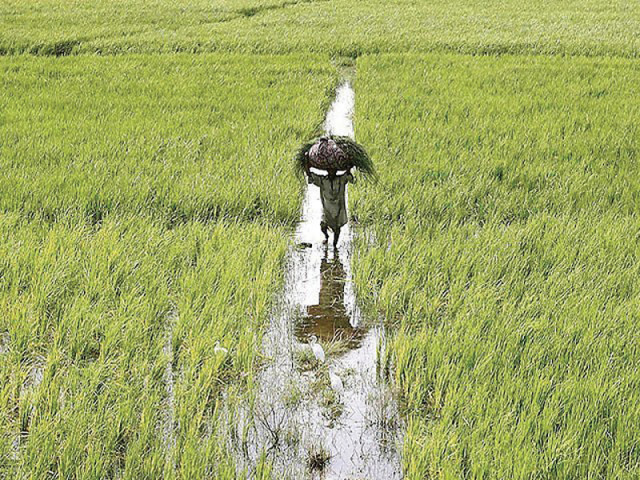Rice issues: Research crucial to improving per acre yield, says Khan
Engro Eximp chief executive stresses work on new seeds to increase production.

Pakistan used to conduct research on seeds owing to which the quality was impressive. However, regional countries have moved far ahead in the last few decades. PHOTO: FILE
“The country is going to see a growth in its rice production but it is below the desirable level. We badly need new seeds to increase rice production as well as the exports,” said Khan in an interview with The Express Tribune.
Engro Eximp, which deals in commodity trading, is part of Engro Corporation. The company owns a 100% stake in Engro Eximp Agriproducts Ltd, which is involved in procurement, processing and export of rice to markets in the Middle East and the European Union.
Pakistan used to conduct research on seeds owing to which the quality seen was impressive. However, in the last few decades, regional countries have moved far ahead in productive research, cited as one of the causes why Pakistan’s rice production is not growing as it should be, he said.
Khan believes the use of quality seeds is the single largest factor that can transform the produce of Pakistan. However, better usage of water and fertilisers are very important as well.
“We want to increase our seed distribution to enhance farmer income as well as ours,” he said, “We have been very successful in educating farmers on water conservation, importance of good seeds and better use of fertilisers.”
Owing to the use of quality seeds, the output of our farmers has improved, he said, adding that now we get little by-product and more percentage of high quality long-grain basmati rice per acre.
Pakistan produces around 6-6.5 million tons of rice and exports more than half of the total produce. Out of 2 million tons production of basmati, a high quality grade of rice that only grows in India and Pakistan, the country exports 800,000-900,000 tons.
Eximp produces 100,000 tons basmati every year and exports about 70% of its produce. Although it is the biggest exporter of basmati – because it operates the country’s largest rice-processing mill – it is looking to enhance its capacity to 150,000 within the next three years.
The company plant is located on 67 acres in Muridke, the heart of the basmati growing area of Punjab.
Since Pakistan and India are the only basmati growing countries, industry people usually compare their per acre yield and price in the international markets.
According to Khan, Pakistan’s per acre basmati produce is not that low compared to India. For instance, if Pakistan gets 35 maund per acre yield, India gets around 40 he informed.
“But the output of India’s top quality basmati rice is much better than Pakistan’s. The difference in the output of the two countries is about 30%,” he added.
He stressed that Pakistan was lagging behind due to an alarmingly low expenditure on research. India, on the other hand, is not only investing in rice but on seeds of other crops as well.
Unlike many Pakistan rice exporters, Khan does not think basmati varieties of Pakistan face recognition issues in the world market.
“Our basmati varieties are recognised the world over and there is no issue here. But yes, India and Pakistan need to sit and resolve the issue of geographic recognition once and for all.”
Published in The Express Tribune, April 14th, 2014.
Like Business on Facebook, follow @TribuneBiz on Twitter to stay informed and join in the conversation.



















COMMENTS
Comments are moderated and generally will be posted if they are on-topic and not abusive.
For more information, please see our Comments FAQ